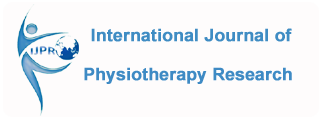IJPR.2022.183
Type of Article: Original Research
Volume 11; Issue 1 (February 2023)
Page No.: 4436-4441
DOI: https://dx.doi.org/10.16965/ijpr.2022.183
Prevalence of Fatigue and Reduced Functional Status One Year Post-COVID 19 Infection
Tanvi Kelkar *1, Mandar Malawade 2.
*1 Student, Department of physiotherapy, Krishna Institute of Medical Sciences “Deemed to be” University, Karad, Maharashtra, India.
2 Head of pediatric department, Department of physiotherapy, Krishna Institute of Medical Sciences “Deemed to be” University, Karad, Maharashtra, India.
Address of correspondence: Tanvi Nikheel Kelkar, Department of physiotherapy, Krishna Institute of Medical Sciences “Deemed to be” University, Karad, Maharashtra, India. Phone number- 9773993575 E-Mail: tanvikelkar29@gmail.com
ORCiD: Tanvi Kelkar: 0000-0002-7593-5295
ABSTRACT
Background: Covid-19 was declared a global pandemic by the World Health Organization (WHO). The first confirmed case of COVID-19 in India was reported on January 27, 2020. The term long-covid is used when the patients suffer from symptoms even after recovering from covid-19. Covid-19 has a major impact on the functional status of individuals who had suffered from it. Similarly, fatigue is considered a major symptom of covid-19 as well as long covid.
Participants: 101 participants (46 males and 55 females, mean age=38.07±15.807 years) were included in the study. It was essential that all participants should have contacted the infection one year prior to the study. Patients with known functional disabilities and known illnesses likely to progress and limit physical ability were excluded from the study. Study design: Cross-sectional study, online survey
Procedure: All the individuals who had recovered from covid-19 infection almost one-year prior were contacted and were asked to fill out an online questionnaire. Fatigue was assessed using the chalder fatigue scale and functional status was assessed using a questionnaire. Based on the answers, the grades were allotted according to the post-covid-functional status scale.
Results: Most of the participants (28.71%) had negligible functional limitation (Grade 1), 25.74% had slight limitation (Grade 2), 6.93% had moderate limitation (Grade 3), 4.95% had severe limitation (Grade 4), 33.67% participants had no limitation (Grade 0) and almost 38.61% of participants reported post-covid-19 fatigue one year after contracting the infection.
Conclusion: This study indicates that there is a prevalence of fatigue and reduced functional status one year post-covid 19. It also suggests that the long-term effects of covid-19 infection are anticipated in covid-19 survivors.
Keywords: covid-19, Long Covid, Post Covid Functional Status Scale, Chalder Fatigue Scale.
REFERENCES
[1]. Wiersinga WJ, Rhodes A, Cheng AC, Peacock SJ, Prescott HC. Pathophysiology, transmission, diagnosis, and treatment of coronavirus disease 2019 (COVID-19): a review. Jama. 2020 Aug 25;324(8):782-93.
[2]. Yang Y, Shang W, Rao X. Facing the COVID‐19 outbreak: What should we know and what could we do?. Journal of medical virology. 2020 Jun 1.
[3]. Wu YC, Chen CS, Chan YJ. The outbreak of COVID-19: An overview. Journal of the Chinese medical association. 2020 Mar;83(3):217.
[4]. Adhikari SP, Meng S, Wu YJ, Mao YP, Ye RX, Wang QZ, Sun C, Sylvia S, Rozelle S, Raat H, Zhou H. Epidemiology, causes, clinical manifestation and diagnosis, prevention and control of coronavirus disease (COVID-19) during the early outbreak period: a scoping review. Infectious diseases of poverty. 2020 Dec;9(1):1-2.
[5]. Ceban F, Ling S, Lui LM, Lee Y, Gill H, Teopiz KM, Rodrigues NB, Subramaniapillai M, Di Vincenzo JD, Cao B, Lin K. Fatigue and cognitive impairment in Post-COVID-19 Syndrome: A systematic review and meta-analysis. Brain, behavior, and immunity. 2022 Mar 1;101:93-135.
[6]. Pant P, Joshi A, Basnet B, Shrestha BM, Bista NR, Bam N, Das SK. Prevalence of functional limitation in COVID-19 recovered patients using the post COVID-19 functional status scale. JNMA: Journal of the Nepal Medical Association. 2021 Jan;59(233):7.
[7]. Andrews MA, Areekal B, Rajesh KR, Krishnan J, Suryakala R, Krishnan B, Muraly CP, Santhosh PV. First confirmed case of COVID-19 infection in India: A case report. The Indian journal of medical research. 2020 May;151(5):490.
[8]. Sandler CX, Wyller VB, Moss-Morris R, Buchwald D, Crawley E, Hautvast J, Katz BZ, Knoop H, Little P, Taylor R, Wensaas KA. Long COVID and post-infective fatigue syndrome: a review. InOpen forum infectious diseases 2021 Oct (Vol. 8, No. 10, p. ofab440). US: Oxford University Press.
[9]. Fernández-de-Las-Peñas C, Martín-Guerrero JD, Navarro-Pardo E, Rodríguez-Jiménez J, Pellicer-Valero OJ. Post-COVID functional limitations on daily living activities are associated with symptoms experienced at the acute phase of SARS-CoV-2 infection and internal care unit admission: A multicenter study. Journal of Infection. 2021 Aug 8.
[10]. Du HW, Fang SF, Wu SR, Chen XL, Chen JN, Zhang YX, Huang HY, Lei HH, Chen RH, Pan XB, Li XQ. Six-month follow-up of functional status in discharged patients with coronavirus disease 2019. BMC infectious diseases. 2021 Dec;21(1):1-8.
[11]. Machado FV, Meys R, Delbressine JM, Vaes AW, Goërtz YM, van Herck M, Houben-Wilke S, Boon GJ, Barco S, Burtin C, van’t Hul A. Construct validity of the Post-COVID-19 Functional Status Scale in adult subjects with COVID-19. Health and quality of life outcomes. 2021 Dec;19(1):1-0.
[12]. Mohamed-Hussein A, Galal I, Saad M, Zayan HE, Abdelsayed M, Moustafa M, Ezzat AR, Helmy R, Abd Elaal H, Aly K, Abderheem S. Post-COVID-19 functional status: relation to age, smoking, hospitalization and comorbidities. MedRxiv. 2020 Jan 1.
[13]. Rudroff T, Fietsam AC, Deters JR, Bryant AD, Kamholz J. Post-covid-19 fatigue: Potential contributing factors. Brain sciences. 2020 Dec;10(12):1012.
[14]. Islam MF, Cotler J, Jason LA. Post-viral fatigue and COVID-19: lessons from past epidemics. Fatigue: Biomedicine, Health & Behavior. 2020 Apr 2;8(2):61-9.
[15]. Molnar T, Varnai R, Schranz D, Zavori L, Peterfi Z, Sipos D, Tőkés-Füzesi M, Illes Z, Buki A, Csecsei P. Severe Fatigue and Memory Impairment Are Associated with Lower Serum Level of Anti-SARS-CoV-2 Antibodies in Patients with Post-COVID Symptoms. Journal of Clinical Medicine. 2021 Jan;10(19):4337.
[16]. Li G, Fan Y, Lai Y, Han T, Li Z, Zhou P, Pan P, Wang W, Hu D, Liu X, Zhang Q. Coronavirus infections and immune responses. Journal of medical virology. 2020 Apr;92(4):424-32.
[17]. Kachroo V. Novel coronavirus (COVID-19) in India: Current scenario. International Journal of Research and Review. 2020 Mar;7(3):435-47.








